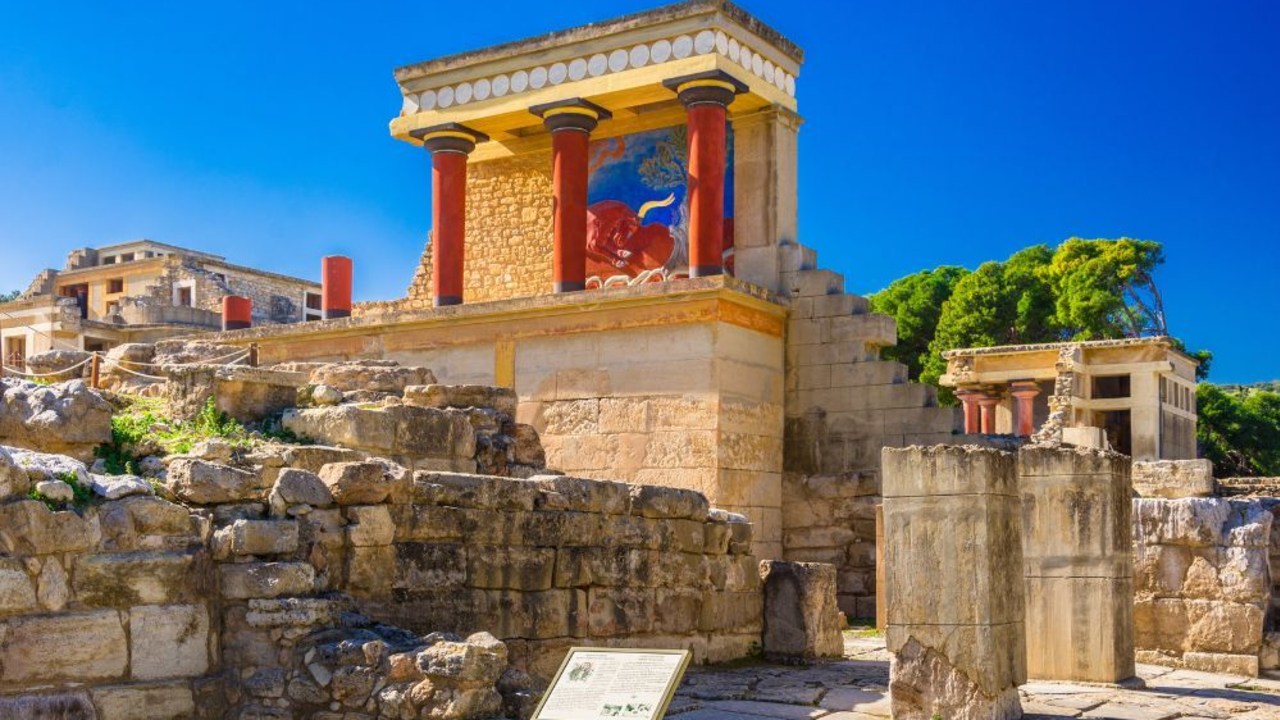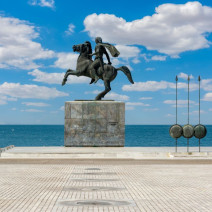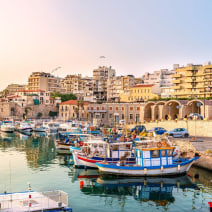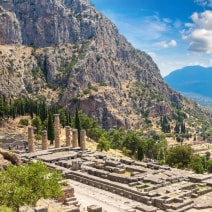Greece Travel Guide
Known as the cradle of Western civilisation, Greece is a captivating destination that offers a unique blend of ancient history, stunning islands, and vibrant culture.
Greece has a population of around 10.4 million people, with Greek as the official language and English widely spoken in tourist areas. The country’s capital, Athens, is home to iconic landmarks like the Parthenon and Acropolis, while other major cities such as Thessaloniki offer their own unique cultural and historical attractions.
From the temples of Ancient Greece to the monasteries of Meteora and the charming villages of the Cyclades, Greece presents a wealth of experiences for every traveller. Athens’ bustling city life contrasts beautifully with the tranquillity of the islands like Santorini and Mykonos, famous for their whitewashed buildings and breathtaking sunsets. Greece is also celebrated for its coastal gems, including Crete, Rhodes, and Corfu, each with unique landscapes and cultural treasures.
We've outlined some general information that may be helpful to you when planning your next holiday to Greece.

Time Zone & Currency
Greece is 2 hours ahead of Greenwich Mean Time (GMT) throughout the year. The currency used is the EURO.

Weather In Greece
Greece has a Mediterranean climate, with hot, dry summers and mild, wet winters. Coastal areas enjoy cooling sea breezes, while northern and mountainous regions are cooler, especially in winter.

Reading For Your Trip To Greece
Zorba the Greek by Nikos Kazantzakis
The Island by Victoria Hislop
Captain Corelli's Mandolin by Louis de Bernières
Best time to go to Greece
Greece is a year-round destination, but the best times to visit are from April to June and September to October, when the weather is warm and pleasant, and crowds are smaller. July and August are ideal for island visits but are busier, while winter offers a quieter experience, especially in Athens and other cultural sites.
Top Tourist Attractions In Greece

Best places to visit in Greece
Greece is full of amazing places to discover, from the ancient charm of Athens to the breathtaking beauty of Santorini.

Virtual Tour Of Greece
This virtual tour will help you discover the best of our holidays to Greece, offering a glimpse into the country’s vibrant culture, ancient landmarks, and stunning coastal views.
Food and drink in Greece
Greek cuisine is a delightful fusion of fresh, local ingredients and centuries-old culinary traditions and eating out in a typical taverna is an experience that enhances any holiday in Greece. Some must-try dishes include:
- Souvlaki: Greece’s beloved street food, featuring skewers of marinated meat (often pork or chicken), grilled to perfection and often served with pita bread, tomatoes, onions, and tzatziki.
- Moussaka: A classic Greek dish made with layers of aubergine, minced meat (typically lamb or beef), and creamy béchamel sauce, baked until golden and delicious.
- Spanakopita: A savoury pie filled with spinach, feta cheese, and herbs, wrapped in delicate layers of filo pastry – a popular snack or light meal across Greece.
- Dolmades: Grape leaves stuffed with rice, herbs, and sometimes minced meat, offering a burst of Mediterranean flavours in every bite.
Greek wine has been enjoyed since ancient times, with wines like Assyrtiko from Santorini and Agiorgitiko from Nemea gaining international acclaim. Ouzo is the national drink, so make sure you try a shot!
Greece Travel Guide FAQs
Can you give a brief history of Greece?
Greece has a rich history that dates back thousands of years, marked by its influence on Western civilisation, philosophy, democracy, and the arts. Ancient Greece flourished with city-states like Athens and Sparta, contributing foundational ideas in governance, science, and culture. The Classical period saw the rise of philosophers such as Socrates, Plato, and Aristotle, and the construction of iconic structures like the Parthenon.
In the 4th century BCE, Alexander the Great expanded Greek influence across Europe, Asia, and Africa. Greece later became part of the Roman and then Byzantine Empires, which introduced Orthodox Christianity, shaping the nation's religious heritage. After centuries under Ottoman rule, Greece gained independence in 1821, igniting a revival of its cultural and national identity.
Modern Greece is celebrated for its blend of ancient heritage and vibrant culture, stunning landscapes, and warm hospitality, making it a destination that captivates visitors from around the world.
Do I require a holiday visa to travel to Greece?
A valid passport is required for this holiday. EU citizens do not need a visa. Non-EU citizens should check their requirements. A visa is not required for EU passport holders. For information on visa requirements for non-EU citizens, we recommend you contact the Greek embassy or consulate in your country of residence. UK citizens can find further information by visiting www.gov.co.uk
What advice do you have for tipping in restaurants while in Greece?
Tipping is not obligatory, however wages for those working in restaurants and cafes are low and tips are always appreciated. If you feel you have had good service, you could tip 5-10% directly to your waiter.
Is it safe to tour Greece?
The destinations included in your itinerary are generally safe, and our guides are attentive to your well-being throughout the journey. However, like in any major city, there can be opportunists, particularly in crowded tourist areas in Athens and other popular spots. We recommend being vigilant with your personal belongings, especially in busy locations. Make use of your hotel safe for valuables and carry a photocopy of your passport when exploring. Take extra care when using public transport, and enjoy your travels with peace of mind.
Useful Links
- For up-to-date information regarding entry into Greece please see: www.gov.uk
- Official Greek Tourism Board: www.visitgreece.gr










